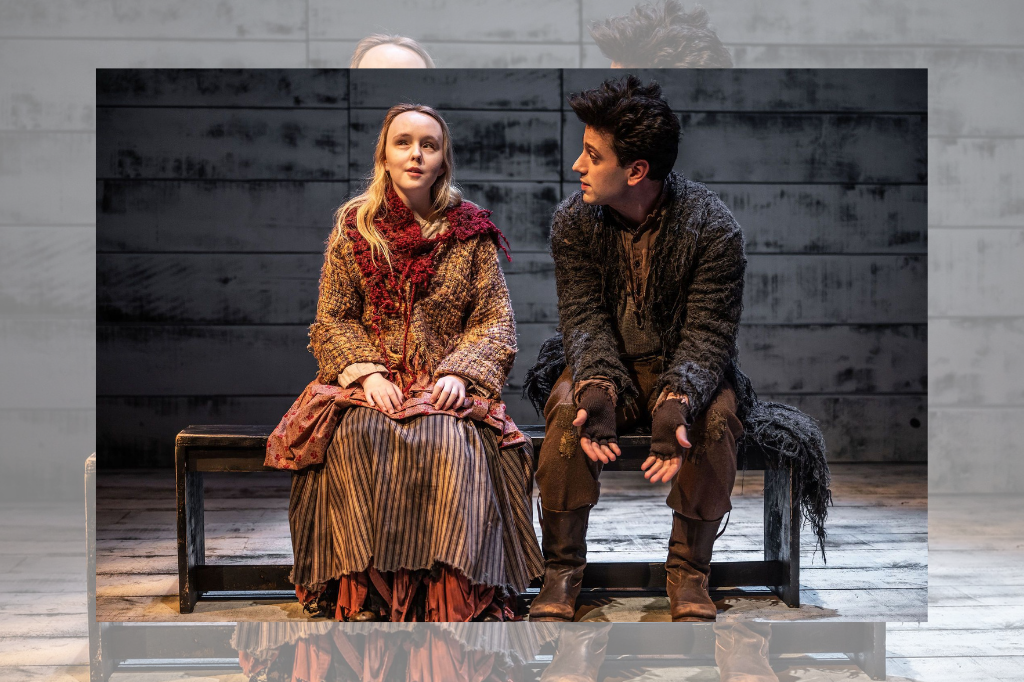REVIEW: Orphans for the Czar at Crow’s Theatre
Lauded Canadian playwright George F. Walker, known best for searing, darkly funny dramas set in the heart of Toronto, is back… with a comedic romp through the chaos of Bloody Sunday in St. Petersburg. It’s not his first foray into Russian adaptation — his Nothing Sacred, inspired by Ivan Turgenev’s Fathers and Sons, premiered in Toronto in the late ‘80s.
Orphans for the Czar, suggested by Maxim Gorky’s The Life of a Useless Man, is, unsurprisingly, a rather Canadian take on the events of one of Russia’s early twentieth-century uprisings. A few sentences end with ‘eh,’ and there is nary a false Russian accent in sight (thankfully). Quickly we spy allusions to 1984, Fahrenheit 451, hell, even The Handmaid’s Tale: in fascist regimes, including Walker’s interpretation of czarist Russia’s, books and their contents are seen as dangerous, provocative, illegal.
This is a play predicated on ‘eventually’: eventually things will get better. Eventually there will be enough food and heat for everyone. Eventually our protagonist, Vasley, played generously and with immaculate comic timing by Paolo Santalucia, will escape his circumstances; eventually he’ll overcome his awkwardness; eventually there’ll be a fair and just world in which the rich and poor can co-exist. Walker has navigated the learnt helplessness of poverty well — Vasley and his fellow peasants are byproducts of a broken system, and their visceral need for hope is one which drives a spoiler-prone story of spies and betrayal forward.
Vasley’s not alone in this world. An uncle in the village, Piotr, sends him off to St. Petersburg to work for a family member, known simply as Master — Piotr and Master, in a sight gag which never loses its comedic bite, are played perfectly by Eric Peterson. Peterson and Santalucia are the anchors of a decidedly well-balanced ensemble.
Sweet Rayisha, a blind girl from Vasley’s village, eventually (there’s that word again) travels to St. Petersburg to reunite with Vasley. Rayisha here is played by the charming Shayla Brown, a newcomer to Toronto theatre — Brown makes the most of an underwritten character, as do Michelle Mohammed as Olga and Shauna Thompson as Maya. Patrick McManus is a menacing Makarov — in stylish suit and with a magnetic, low grumble of a voice, I was reminded of Hadestown’s Patrick Page — and Kyle Gatehouse, too, is a well-timed comic as Sasha.
Director Tanja Jacobs has treated Walker’s text well, leaning into its potential for comedy and mostly avoiding traps of melodrama. It’s a flawed text — characters like Rayisha and Olga feel like story-advancing pawns, especially compared to Valsey and Makarov, and certain plot holes split wide open by the play’s conclusion. Master has a penchant for young girls, we learn early on, but by the end of Orphans for the Czar, that fact seems to be all but forgotten — that could be a problem in Gorky’s source text, but it’s not one that’s fixed in either playwriting or production here. As well, the bookshop in which Vasley works seems to have some very strange architecture — an onstage staircase seems to lead not only to an upstairs apartment, but… into the streets of St. Petersburg? Aside from this weirdness in visual continuity, Jacobs brilliantly leans into the chaos of the era, littering the stage with books and making smart use of rolling tables and benches — she and set designer Lorenzo Savoini have created an appropriate and eye-catching aesthetic conceit which serves the production’s actors well.
It is impossible to engage with this show without making mental note of the obvious connections between it and the current conflict between Ukraine and Russia. Peasantry is a side effect of fascism, censorship its unignorable symptom. Orphans for the Czar is timely, sharp, and, surprisingly, hysterically funny — its successes surely outweigh its stumbles, and solidify it as another success for both Crow’s Theatre and for Walker himself.
Orphans for the Czar plays at Crow’s through April 17. For more information, click here.















Comments